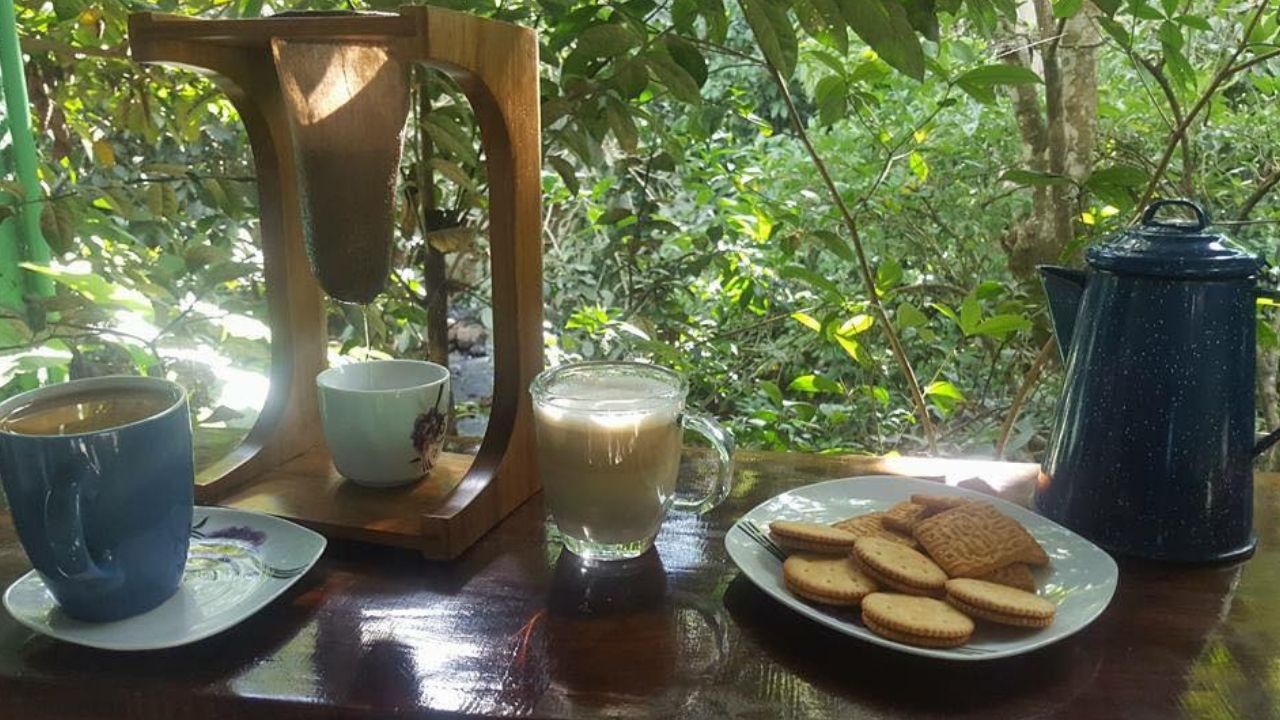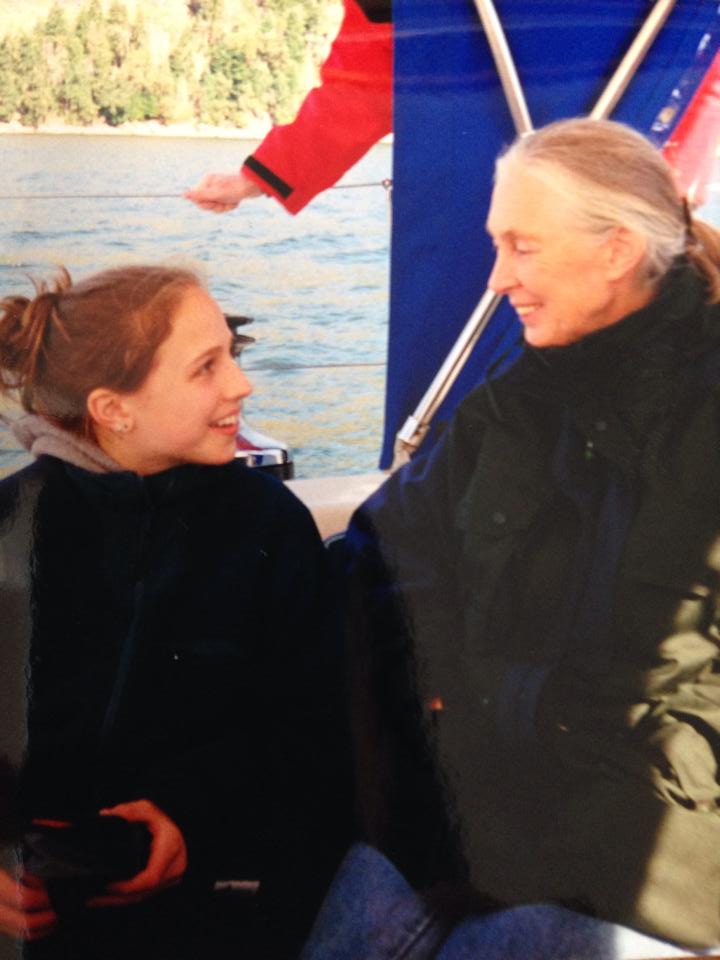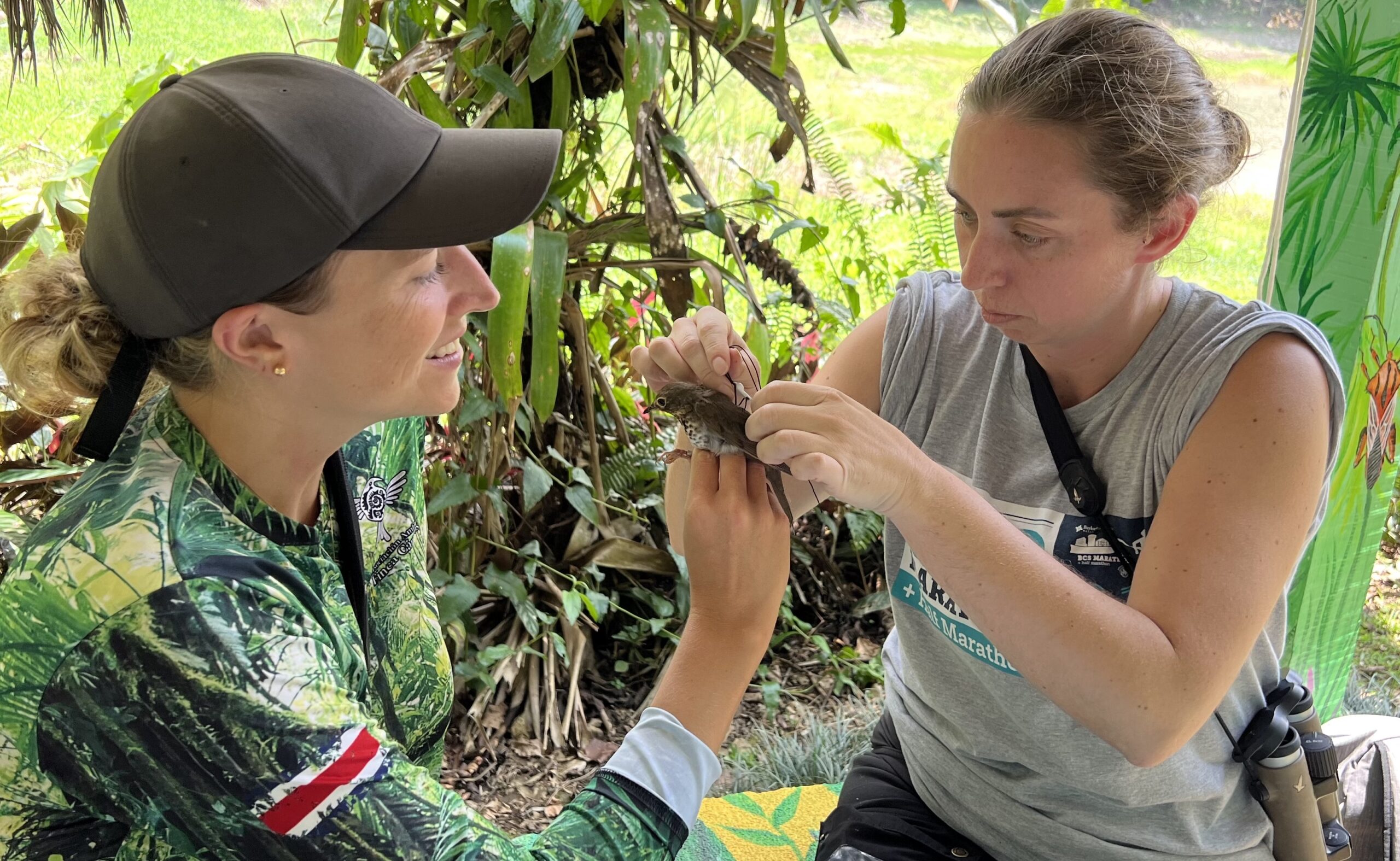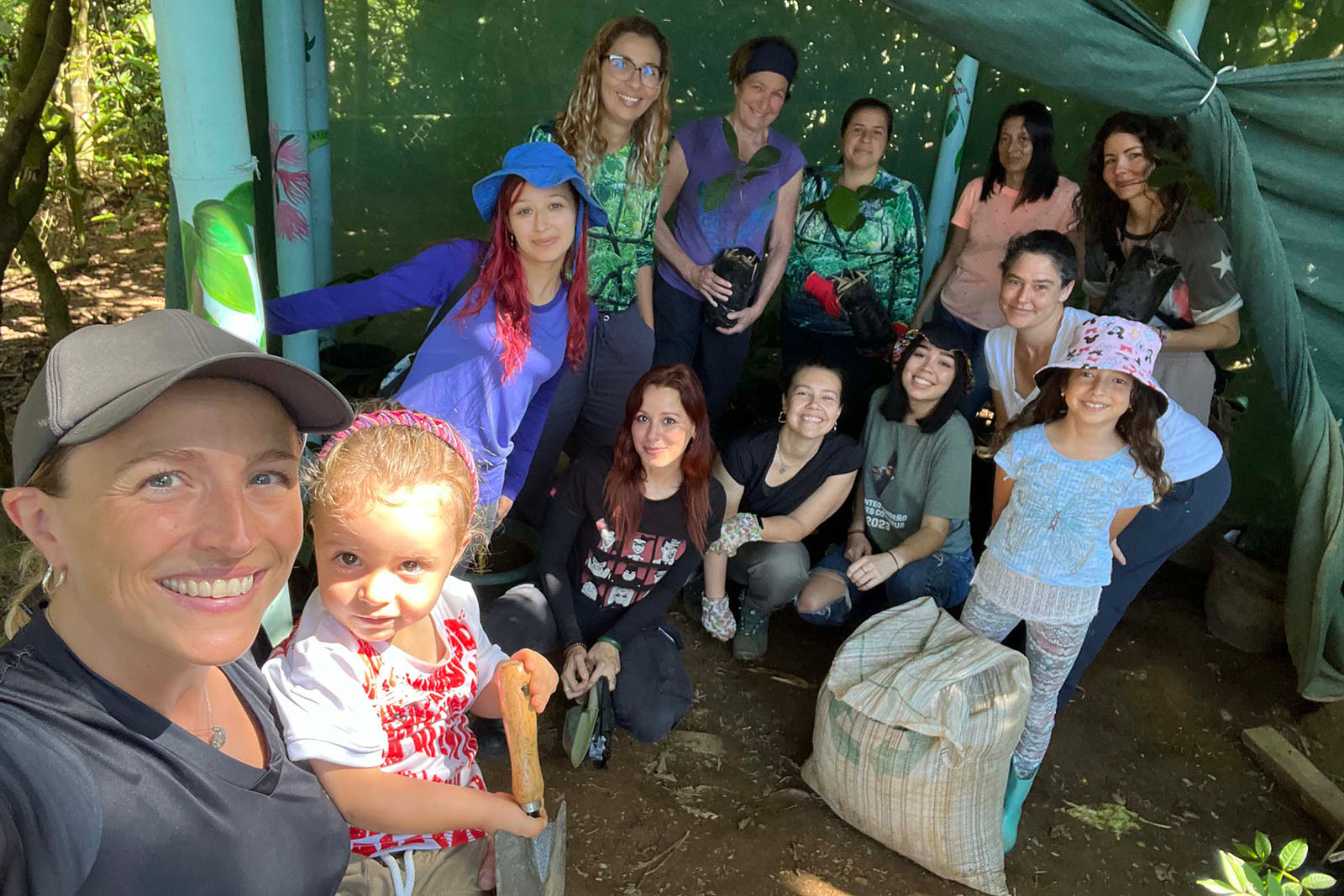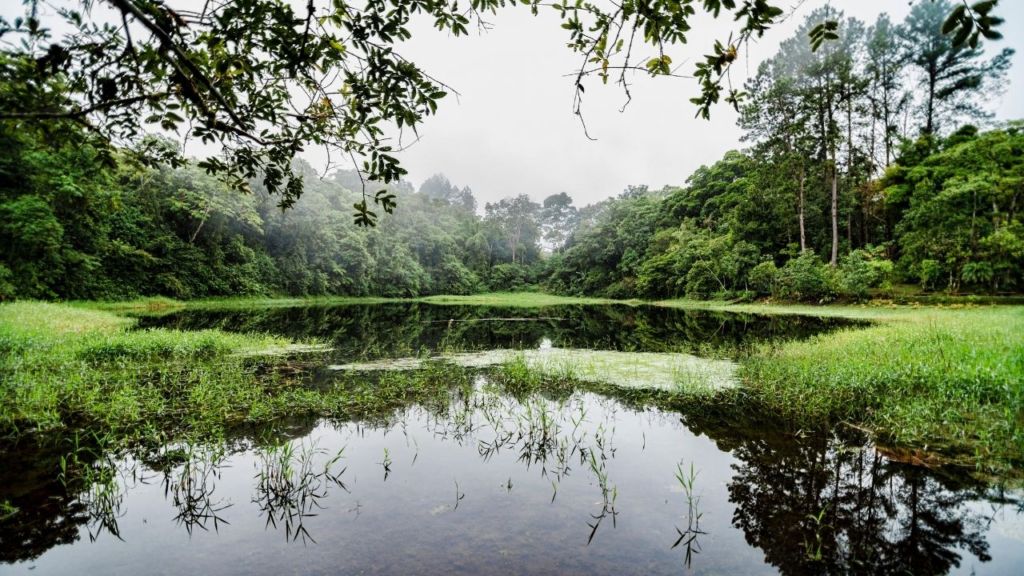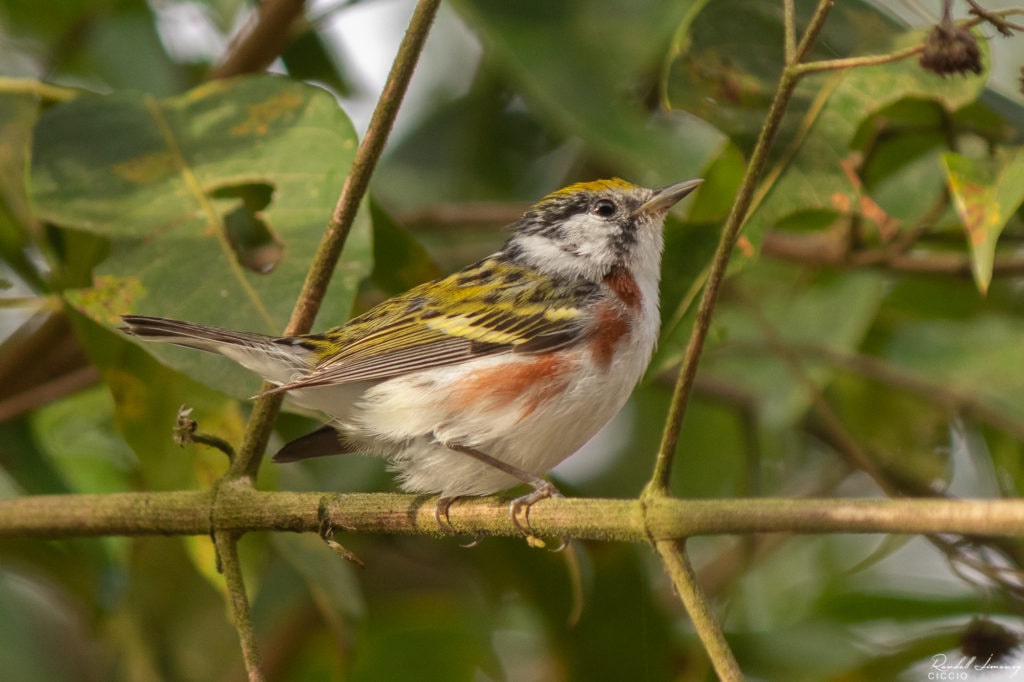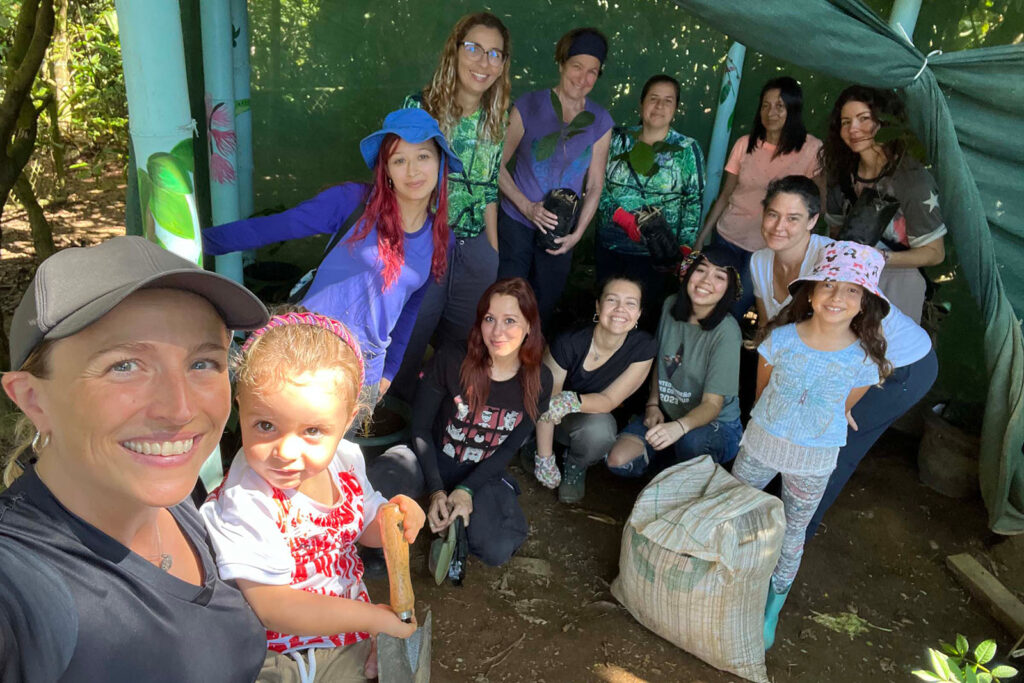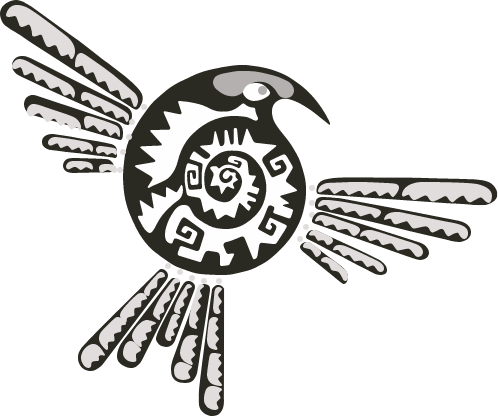- When and why did you open Mercado Viriteca?
Four years ago, the existing business in this location was about to close because it wasn’t working with just the sale of fruits and vegetables. As the tenant, the owner of the building, Abinal Rojas, gave me the opportunity to take on the Mercado Viriteca project to reinvent it. My goal has been to create a place that benefits the community and the environment. I buy vegetables, fruits, cheeses, eggs and more from local producers, which also gives local consumers access to fresh produce without having to go to the supermarket. The creek out back was filled with garbage, so I committed to cleaning it. I’m still committed to maintaining it that way, which helps the environment and allows me to offer a relaxing space for clients who come to eat and drink coffee.
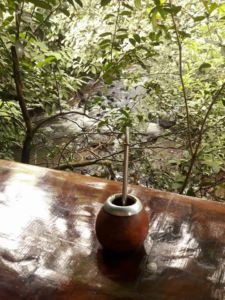
- Where do you think your conservation ethic come from?
The previous generations, like that of my grandfather, were taught that land was more valuable if it was cleared for raising more cattle or planting more coffee. But I saw the beauty and the fun in Nature, and our collective responsibility to protect it. I also saw the tangible benefits to protecting Nature; for example, there is a direct connection between protecting an orange tree, and then having oranges to eat.
- What have been some of the challenges since you opened?
We have faced a new and different challenge every year! Since we opened our doors in 2016, there has been Hurricane Nate, the nationwide teachers’ strike, and the introduction of the IVA and the factura digital. We were finally getting things going, and finding our rhythm. But then in 2020, as we all know, something very different happened: the Covid-19 global pandemic.
It’s hard with a small business because the expenses are always going to be the same. We depend on our regular customers to earn a living. So when the rules are changing every day, like they have been during the pandemic, and we can’t open consistently, clients start to get frustrated.
- And then along came the Cotinga! Tell us about this experience in the context of some of the previous comments you expressed about your conservation ethic and the challenges of running a small business during a pandemic.
I hoped that by protecting the forest and creek out back we would attract birds for the clients to enjoy, and I was expecting birds like Trogons, which are much more common. When the Cotinga first showed up I didn’t even know what it was! So I sent a photo to Bley (one of the Pajareros del Sur), who asked if he could share the photo in birder WhatsApp groups. And suddenly so many people started coming to see this bird, not just from the local area but from as far away as San José! It has really helped save the business during such a difficult time economically.
- Tell us about the kinds of comments and conversations the Turquoise Cotinga has inspired.
Some of my regular clients started asking me: “who are all of these people? They look like they are from National Geographic!” because of all the equipment—binoculars, telescopes, and cameras. It’s been exciting to see how people who might not have had any interest in birds before are asking lots of questions now. For example, one if the cheese vendors asked if I could show him the Cotinga. Some community members have commented that they used to see more Cotingas when there were more Aguacatillo trees, because the Cotingas love their fruit.
I’ve had an opportunity to talk to people of all different backgrounds about the connection between protecting the environment and supporting the local economy. There are some people I used to just say hi to casually, and now I’ve been able to connect to them on a deeper level through this experience. And I believe many people have changed their mind about the accessibility of birding as an activity that everyone can enjoy—you don’t necessarily have to go very far or have all the equipment that makes you look like a National Geographic explorer!
- Do you have any final points you would like to make?
Money is important because we all need it to live, but for me it’s equally important that I help leave the environment even better than I found it. I want the next generation to have the same opportunities to learn more about the wonders of Nature, including a bird as special as the Turquoise Cotinga. This is especially important among a younger generation like today, which is very attached to the phone and social media. Meaningful experiences with nature and its species can inspire them to take care of our planet.
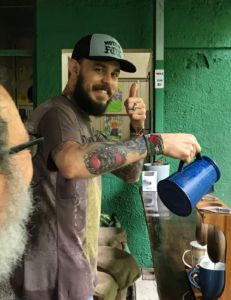
This interview is part of a series featuring local Coto Brus businesses contributing to sustainability and community.
Photos courtesy of Mercado Viriteca and Lilly Briggs.
